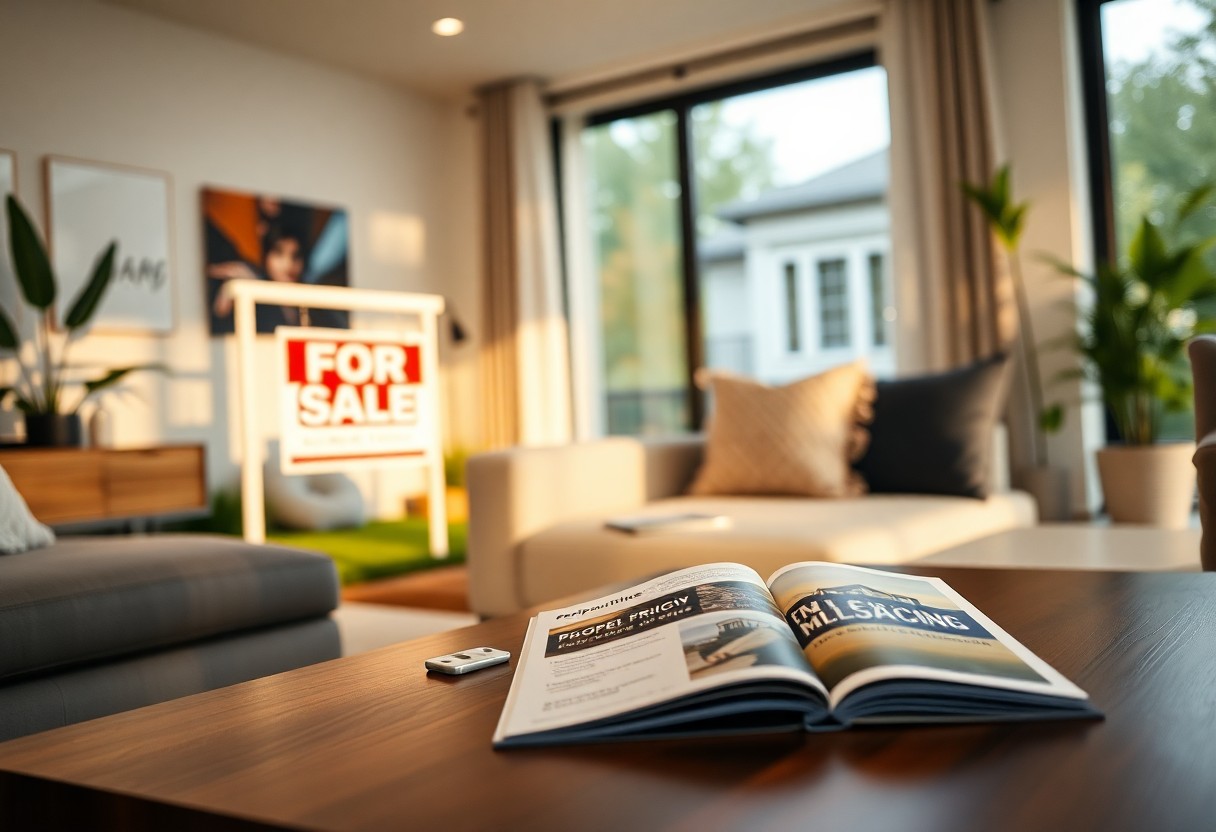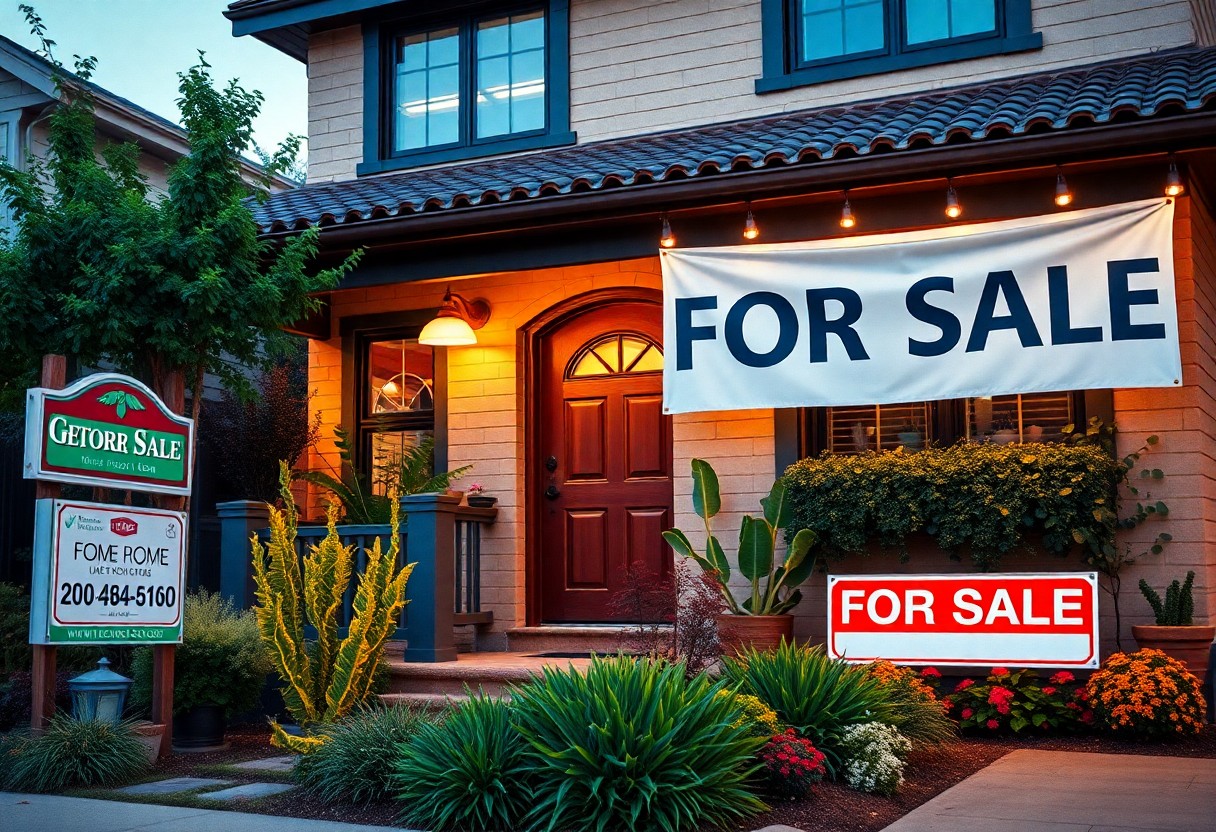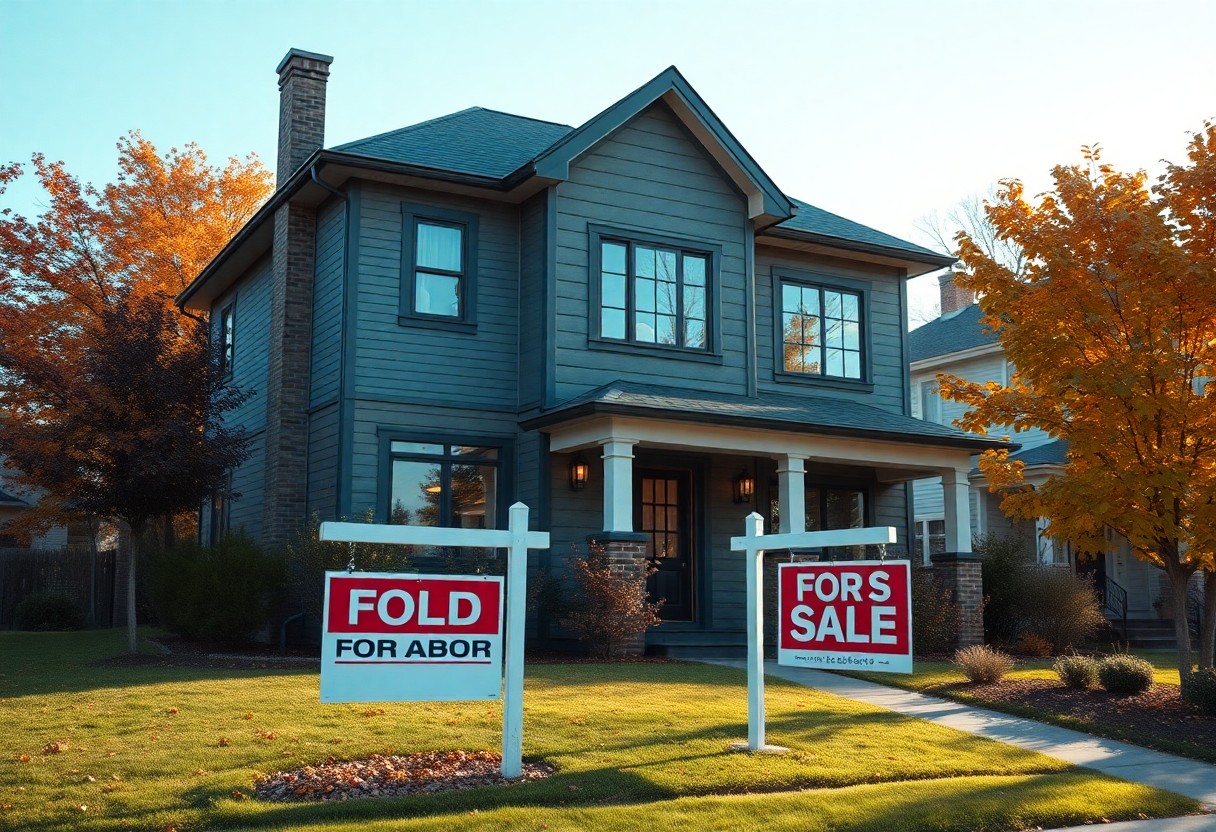Sell your house for more money by understanding the significance of competitive pricing. Setting the right price not only attracts potential buyers but also enhances your property’s perceived value. In this guide, you will discover strategies to evaluate your home’s worth accurately, how to analyze market trends, and the advantages of pricing your home competitively. Empower yourself with the knowledge to make informed decisions, ensuring you maximize your return on investment and close the deal you desire.
Key Takeaways:
- Setting a competitive price from the outset can attract more potential buyers and generate increased interest in your property.
- Understanding the local real estate market and pricing comparable homes accurately is imperative to position your house effectively.
- Regularly reassessing the market dynamics and pricing strategy during the selling process can help maintain competitiveness and maximize your selling potential.
Understanding Competitive Pricing
If you aim to sell your house for more money, understanding competitive pricing is necessary. It involves analyzing market trends, assessing the value of your home, and positioning it strategically within the current real estate landscape. Competitive pricing influences buyer perception and can significantly impact how fast and effectively your property sells.
Factors Influencing Home Pricing
Several factors affect how your home is priced. Here are some of the key elements to consider:
- Location
- Size and layout of the property
- Condition and age of the house
- Market demand and inventory levels
- Recent sales of comparable properties
The right balance of these factors will help you establish a competitive price that attracts potential buyers while maximizing your financial return.
Types of Competitive Pricing Strategies
Even within competitive pricing, there are various strategies you can adopt to position your home effectively in the market. Each strategy has its benefits and can cater to different types of sellers and market situations. Here are some options to consider:
- Pricing below market value to attract more interest
- Setting the price at market value to appeal to serious buyers
- Utilizing a premium pricing strategy to suggest high quality
- Implementing a price reduction if your home is not selling
- Offering pricing incentives such as covering closing costs
Knowing which strategy aligns best with your selling goals can enhance your chances of securing a higher sale price.
The landscape of competitive pricing strategies is dynamic and can vary greatly based on local market conditions and buyer behaviors. Being informed about these options will empower you to make decisions that suit your specific situation. The following table outlines some common strategies:
| Price Type | Description |
|---|---|
| Below Market | Attracts multiple offers quickly |
| At Market | Targets serious buyers |
| Premium | Suggests exclusivity and quality |
| Reduction | Re-evaluates the price if unsold |
| Incentive | Encourages buyer interest with added value |
Thus, understanding the types of competitive pricing strategies can greatly assist in formulating your approach to selling your home. Knowing what works best in your market context will be necessary to maximizing your home’s value during the sales process.
1. Research local market trends and property values.
2. Analyze comparable home sales in your area.
3. Set a competitive price based on data findings.
4. Consider home improvements to increase appeal.
5. List your home at the right time of year.
6. Work with an experienced real estate agent.
Tips for Setting the Right Price
One of the most effective strategies for selling your home is to price it correctly right from the start. This entails understanding not only your property’s worth but also how it fits into the current market landscape. Consider these tips when determining the appropriate price for your home:
- Conduct a thorough market analysis.
- Look at price trends in your neighborhood.
- Compare similar properties that are currently for sale.
- Factor in any unique features your home may have.
- Seek the advice of a real estate professional.
Assume that you follow these tips closely; you will position your home for a quicker sale while maximizing its value.
Researching the Market
There’s no substitute for effective market research when pricing your home. By examining the current housing landscape, you’ll get a clearer understanding of what buyers are willing to pay in your area. You should explore various platforms to gather information about recent sales, active listings, and market dynamics.
Resources like real estate websites and local MLS (Multiple Listing Service) can provide insights into recent sales figures, average days on the market, and local buyer activity. Make sure to also consider seasonal trends that could affect your market.
Analyzing Comparable Sales
Price your home accurately by drilling down on comparable sales in your area. This means examining homes that are similar in size, location, and condition, often referred to as “comps.” A direct comparison can provide a realistic price range for your home and give you a strong foundation for your price-setting strategy.
Key Factors to Consider in Comparable Sales
| Factor | Description |
|---|---|
| Location | Compare homes in the same neighborhood or nearby areas. |
| Size | Look for homes with a similar square footage. |
| Condition | Examine homes that are in similar condition as yours. |
| Recent Sales | Focus on sales within the last 3 to 6 months for accuracy. |
Analyzing these comparable sales will produce a more accurate picture of your home’s market value, assisting you in formulating a competitive pricing strategy. This data helps you to stay ahead of market fluctuations and make informed decisions regarding your listing price.
Details on Analyzing Comparable Sales
| Comparison Type | How to Analyze |
|---|---|
| Pending Listings | Look at homes that have recently gone under contract to gauge buyer interest. |
| Expired Listings | Consider homes that failed to sell to understand price resistance. |
Analyzing this data carefully provides you a clearer roadmap for setting a competitive price that is attractive to buyers while still reflecting the true value of your home. The more comprehensive your analysis, the better you can tailor your pricing strategy.
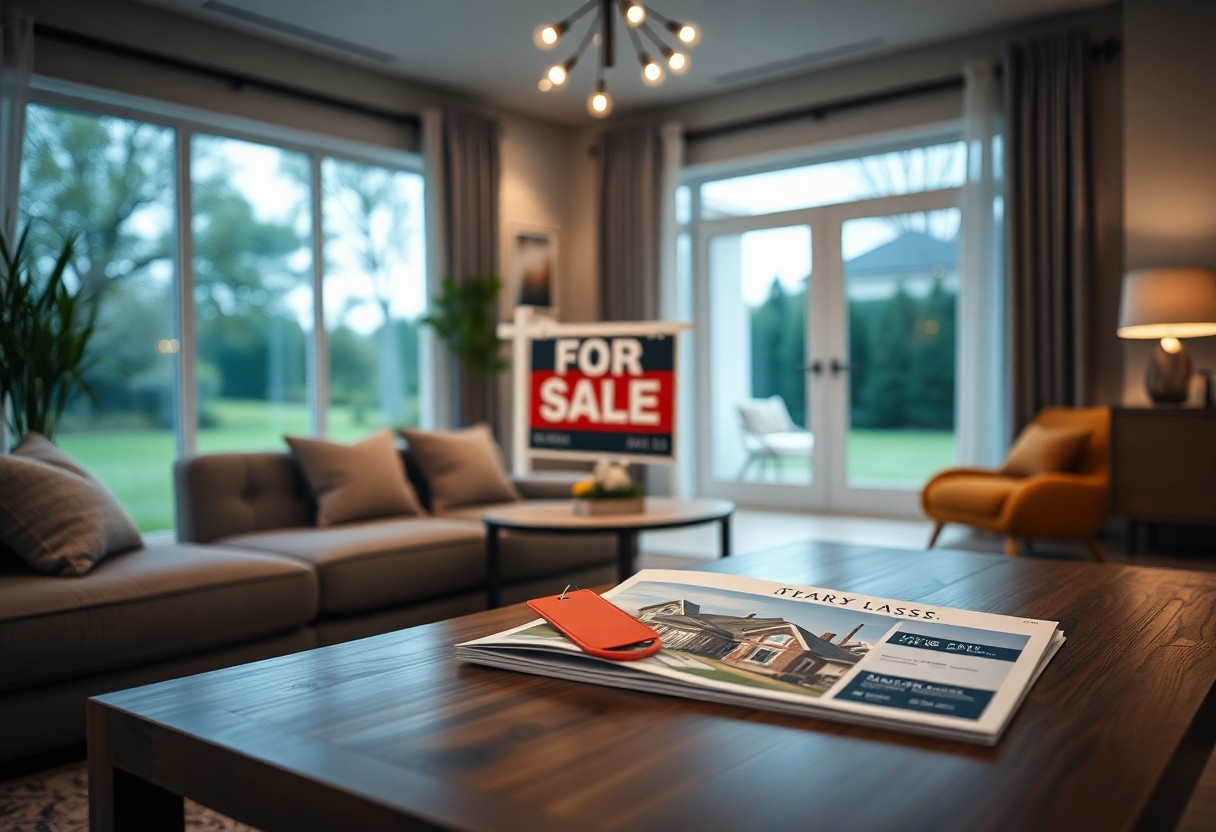
Step-by-Step Guide to Pricing Your Home
Unlike what many sellers might think, setting the right price for your home is not just about haphazardly sticking a number on a listing. Instead, it requires a systematic approach that takes into account various factors affecting your property’s value. A well-structured pricing strategy can significantly enhance your chances of attracting buyers and achieving a favorable sale price. Here is a step-by-step guide to help you navigate this process:
| Step | Description |
|---|---|
| 1. Research the Market | Look at comparable homes in your area, their sale prices, and how long they were on the market. |
| 2. Get a Home Valuation | Consider having a professional appraisal or a comparative market analysis (CMA) done. |
| 3. Evaluate Your Home’s Condition | Assess any repairs or improvements you can make to increase your property’s value. |
| 4. Set a Competitive Price | Price your home within 5% of the average market price for similar properties in your area. |
Preparing Your Home for Valuation
Home evaluation begins long before you actually call in a professional. It starts with preparing your property to ensure it shows its best side. You should clean, declutter, and make any necessary repairs to present an appealing atmosphere that potential buyers will appreciate during viewings. Consider upgrading outdated fixtures or doing core maintenance tasks such as painting walls or landscaping for curb appeal, as these efforts can influence the valuation outcome significantly.
Your ultimate goal is to create an environment that captivates the interest of buyers and appraisers alike. A well-prepared home can lead to a higher appraisal value, setting a solid foundation for your pricing strategy. When the home is appealing both inside and out, it becomes easier to justify a higher price point, ultimately helping you sell for more money.
Consulting with Real Estate Professionals
Estate agents and real estate professionals are invaluable resources when determining the right price for your home. They possess a comprehensive understanding of the local market and have access to data that can significantly impact your pricing decisions. By working with them, you can gather insights about neighborhood trends, buyer preferences, and recent sales that can all inform how you position your home within the market.
A professional will also have the experience needed to recommend a competitive yet realistic price that attracts potential buyers without undervaluing your property. Engaging in a consultative process allows you to benefit from their expertise, ensuring you make informed pricing decisions anchored in market realities.
Pros and Cons of Competitive Pricing
After considering how to maximize your sale, it’s important to weigh the pros and cons of competitive pricing. Pricing your home appropriately can make all the difference in how quickly you sell and for how much. Here’s a quick overview:
| Pros | Cons |
|---|---|
| Attracts more potential buyers | May undervalue your home if priced too low |
| Increases chances of bidding wars | Can lead to extended time on the market if priced too high |
| Improves your home’s visibility | Requires in-depth market analysis |
| Encourages quicker offers | Potential emotional stress if the offer is lower than expected |
| Aligns with neighborhood home values | Needs adjustment based on market fluctuations |
If you want to dive deeper into the subject, check out this Pricing Your Home Right: The Key to a Fast & Profitable Sale resource.
Advantages of Competitive Pricing
Pricing your home competitively can significantly boost your selling experience. It not only attracts a larger pool of buyers but can also instigate interest that may lead to quicker offers. With a correctly set price, your home becomes a top contender in listings, increasing visibility in a crowded market. This exposure can instigate healthy competition among interested buyers, potentially driving up the sale price beyond your expectations.
Moreover, a competitive price signifies that you are serious about selling, which can invoke trust among potential buyers. Selling a home is often an emotional journey, and setting a price that aligns with the market helps create a smoother transaction process. By showcasing your home at a fair, competitive price, you position yourself favorably within your neighborhood, drawing in buyers who are eager to make a move.
Disadvantages to Consider
There’s no denying that competitive pricing comes with its own set of challenges. If you price your home incorrectly, you run the risk of undervaluing it and leaving money on the table. On the flip side, if you set the price too high, your home may linger longer on the market than you would like, which can lead to buyer skepticism. This might create a perception that something is wrong with the property, making it harder to attract offers in the future.
For instance, if you initially price your home based on emotional attachment rather than an objective assessment of market value, you may find that buyers are deterred by your asking price. It’s important to get a grip on the current market conditions and align your pricing strategy accordingly. Balancing between competitive pricing and your financial expectations requires careful consideration, but with the right approach, you can navigate these disadvantages and target an ideal outcome.
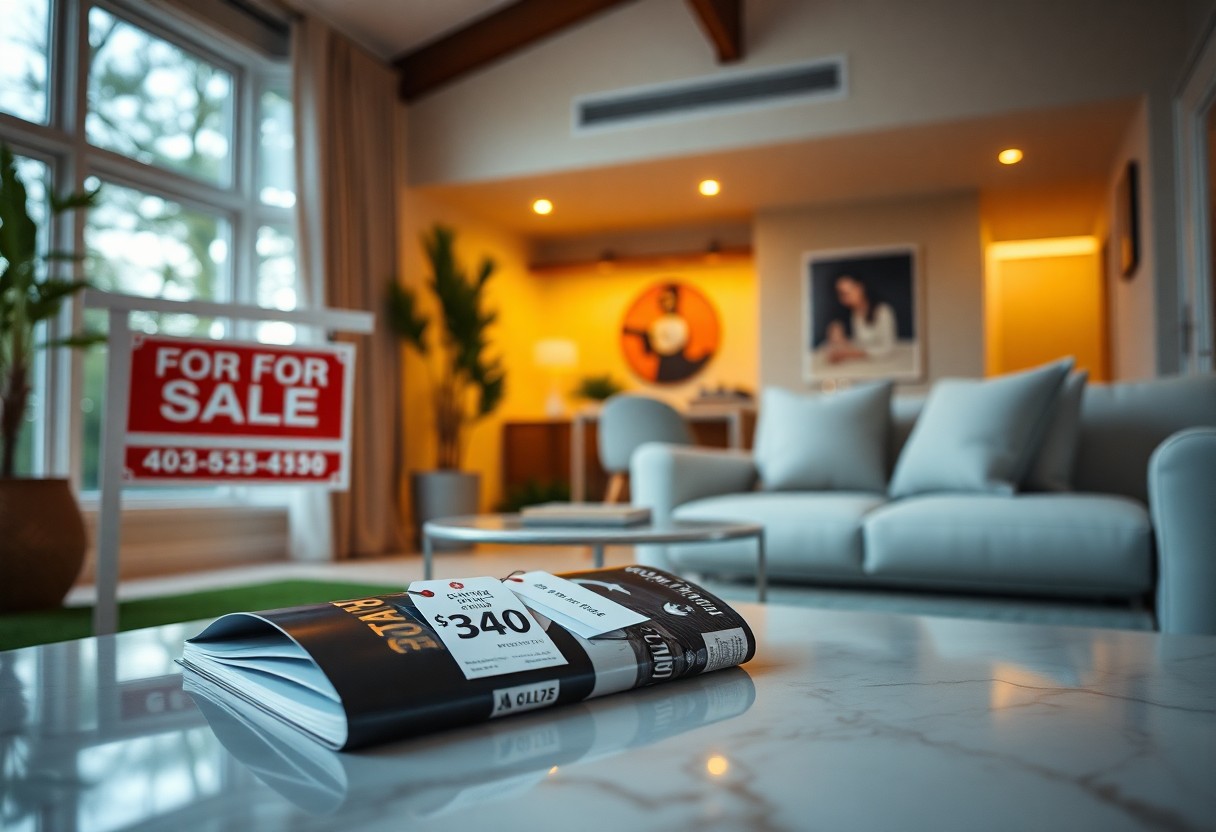
Marketing Your Home Effectively
Now that you’ve established a competitive price for your home, the next step is to market it effectively. You want to reach a wide audience while appealing to potential buyers. Effective marketing can significantly raise interest in your home and ultimately lead to a better deal. You should develop a strategy that encompasses various channels and methods to ensure you aren’t missing out on potential buyers who could be interested in your property.
Choosing the Right Platforms
Marketing your home requires you to carefully select the platforms where potential buyers are most likely to be searching. Online listings on sites like Zillow, Realtor.com, or even social media platforms can expose your home to a broader audience. You should take advantage of engaging visuals and well-crafted descriptions to capture interest. Consider collaborating with a real estate agent who has a strong online presence, as this can enhance your home’s visibility through their network and marketing strategies.
Highlighting Unique Features
Features of your home play a significant role in attracting potential buyers. By properly showcasing what makes your property distinctive, you can set it apart from others on the market. You should conduct an inventory of unique features, whether that’s a beautifully landscaped garden, high-end kitchen appliances, or sustainable energy installations. By emphasizing these traits in your listing, you can create a compelling narrative that resonates with house hunters looking for something special.
Another way to highlight unique features is by utilizing high-quality photographs and even virtual tours. Visual content can communicate the appeal of your home more effectively than words alone. You might also consider staging your home or hosting open houses that allow potential buyers to experience its advantages in person. When you showcase your home in its best light, you increase the chances of drawing in serious offers, thereby maximizing your return on investment.
Negotiation Strategies for Maximum Profit
Not every offer that comes your way will align perfectly with your expectations, and that’s why honing your negotiation skills can make a substantial difference to your final sale price. It’s crucial to set your asking price strategically, as suggested in this article on The Importance of Pricing in Selling Your Home. When entering negotiations, being prepared to engage effectively and confidently can be the key to achieving maximum profit from your sale.
Understanding Buyer Psychology
Any successful negotiation starts with an understanding of what drives buyers’ decisions. Recognizing their motivations, whether it’s the desire for a comfortable living space or an investment opportunity, will inform how you present your property. Buyers often respond positively to homes that evoke an emotional connection; therefore, showing off the unique features and benefits of your home can greatly sway their perception of value.
Techniques for Successful Negotiation
Negotiation strategies are designed to put you in the best position to capitalize on offers. You should approach discussions with a mindset that reflects openness but also a firm understanding of your bottom line. Begin by remaining calm and collected, listening to the buyer’s concerns while affirming their interests. This collaborative dialogue may reveal their priorities, allowing you to frame your responses in ways that encourage favorable terms for you.
It’s equally important to be proactive in presenting counteroffers and alternatives that can highlight the genuine value of your home, perhaps by emphasizing future potential or unique amenities. Creating a sense of urgency, whether through limited market availability or showcasing strong offers, can motivate buyers to act quickly and decisively, ultimately leading to better financial outcomes for you.
To Wrap Up
Taking this into account, effectively pricing your home is a significant factor in maximizing your sale proceeds. When you set a competitive price, you not only attract potential buyers but also increase the chances of receiving multiple offers, which can drive the final sale price higher. Researching the market, understanding comparable properties, and pricing strategically can put you in a strong position when selling your home. This proactive approach can enhance your bargaining power, allowing you to achieve a better return on your investment.
Your ability to navigate the pricing landscape expertly sets the stage for a successful home sale. By keeping your home’s attributes, market conditions, and buyer sentiment in mind, you are well-equipped to make informed pricing decisions. Take the time to evaluate these factors diligently to ensure that your home stands out in the competitive market, allowing you not only to sell quickly but also to secure the best possible price.
FAQ
Q: What is competitive pricing and why is it important when selling my house?
A: Competitive pricing refers to setting a price for your property that reflects the current market value while being attractive in comparison to similar homes in your area. This strategy is important because it ensures that your house stands out among other listings, which can lead to more showings and potential offers. If the price is set too high, buyers may overlook it, while pricing it too low can lead to financial loss. Understanding the local real estate market and evaluating comparable properties will help you establish an appropriate price that maximizes your sale potential.
Q: How can I determine the right competitive price for my home?
A: To determine the right competitive price for your home, start by researching recent sales of comparable properties (often referred to as “comps”) in your neighborhood. Look for homes similar in size, age, condition, and features that have sold within the past few months. Additionally, consult with real estate professionals who can provide a Comparative Market Analysis (CMA) to help you assess your property’s value based on current market trends. It’s also beneficial to consider any unique features of your home that may warrant a higher price, while staying mindful of local market dynamics.
Q: What should I do if my house isn’t attracting buyers despite competitive pricing?
A: If your house isn’t attracting buyers even with competitive pricing, it may be time to evaluate other factors that could be impacting its marketability. Consider enhancing your home’s curb appeal through landscaping, a fresh coat of paint, or minor repairs. Also, review your marketing strategies; high-quality photos and a strong online presence can significantly impact visibility. If the house is still not getting interest, you might want to reassess the pricing in consultation with a real estate agent to ensure it is positioned accurately against market conditions. Sometimes, even a small reduction can rekindle interest and lead to more showings.

